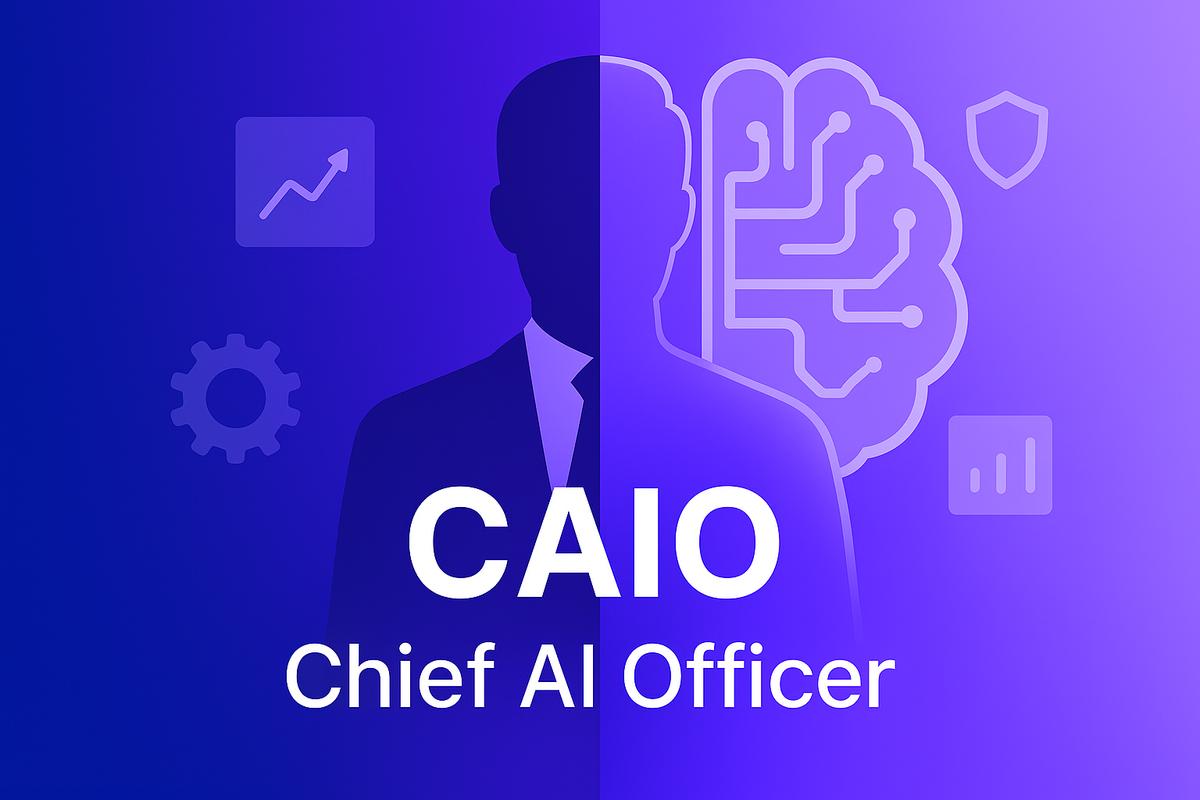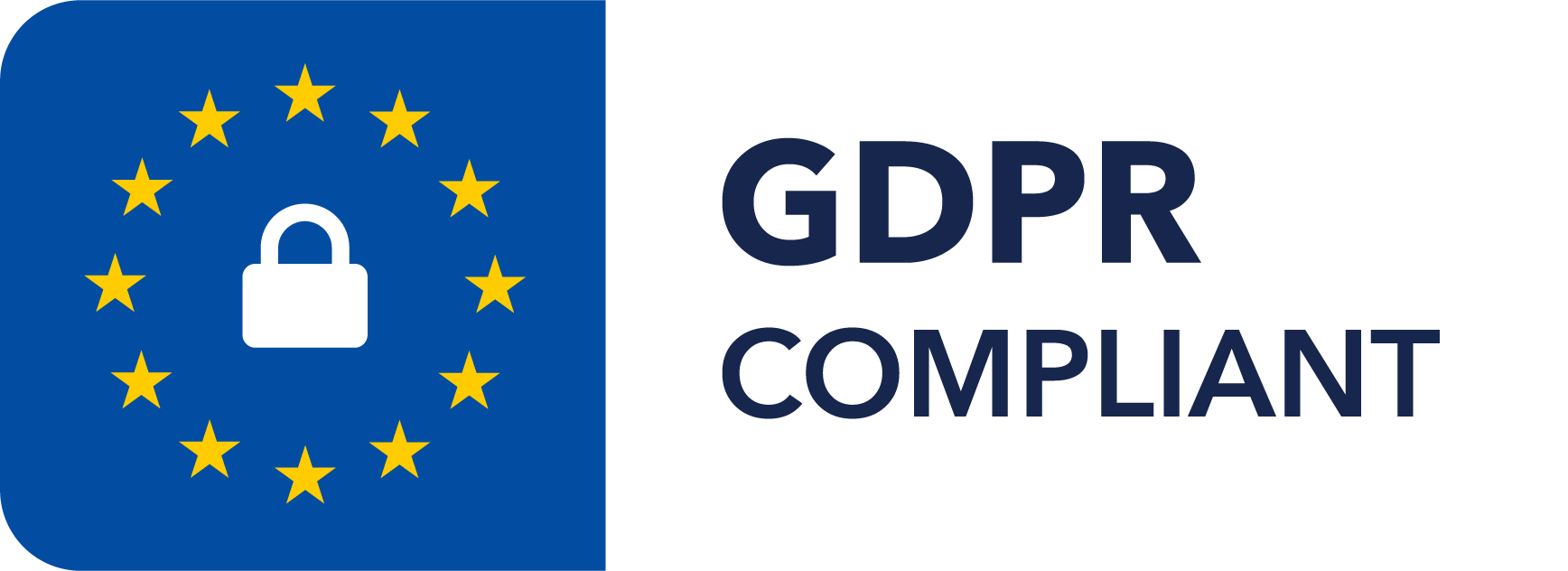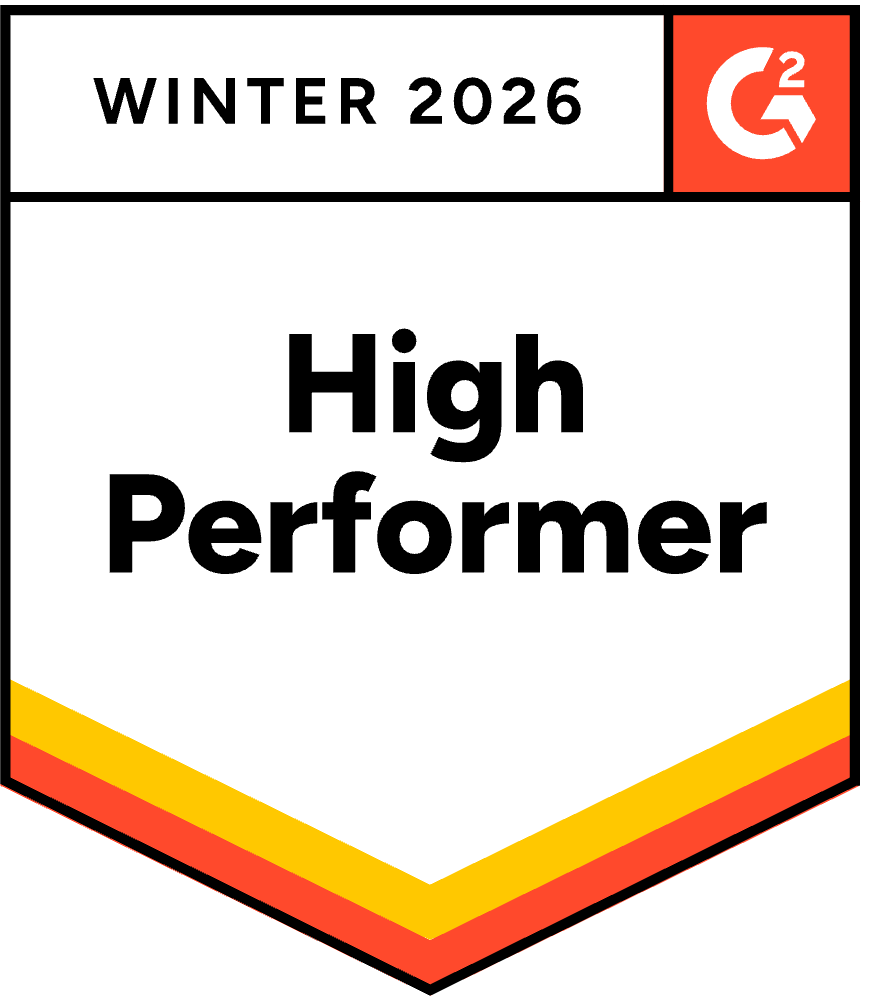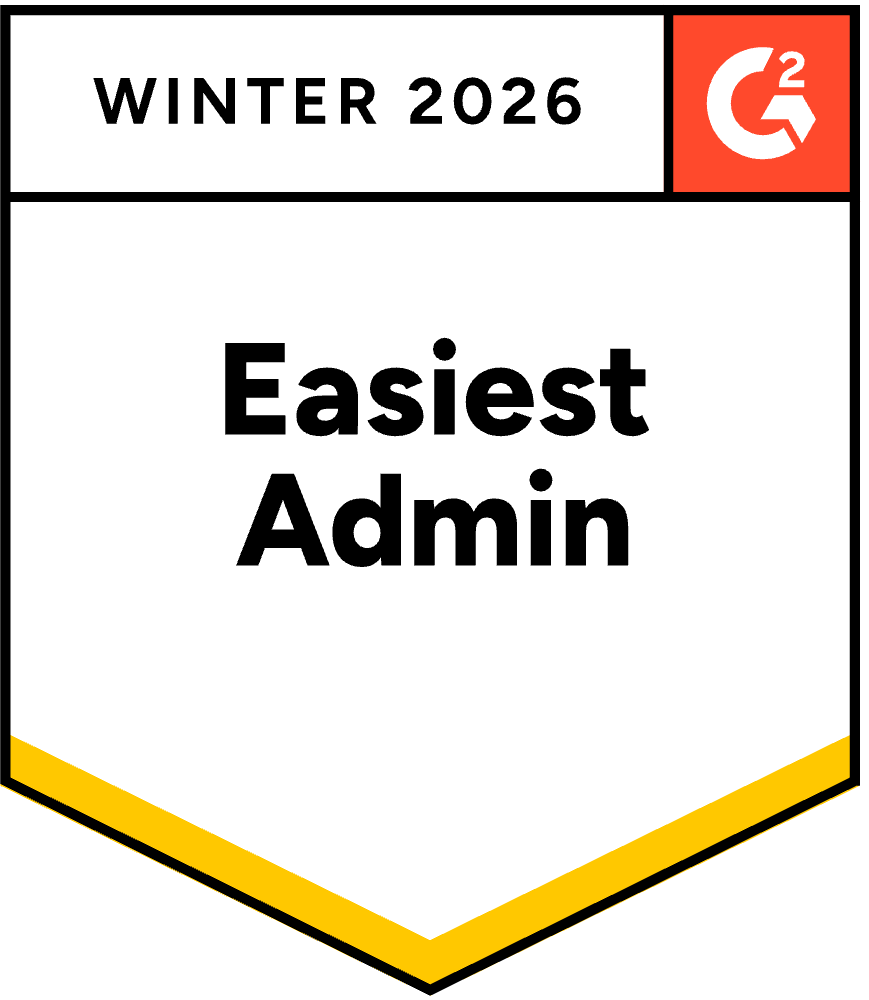Top 8 DDQ Software Solutions for Efficient Responses
August 29, 2025
By
Evie Secilmis

That sinking feeling when a massive Due Diligence Questionnaire lands in your inbox is all too familiar. Your future flashes before your eyes: a chaotic scramble of digging through old spreadsheets and chasing down experts for answers they gave six months ago. This manual process is more than just stressful—it's a recipe for errors and inefficiency. The right DDQ software transforms this fire drill into a calm, controlled workflow. It centralizes your DDQ content management, automates the grunt work, and empowers your team to respond with speed, accuracy, and confidence.
Key Takeaways
- Automate to Eliminate Inefficiency: DDQ software replaces chaotic manual processes—like hunting for information and fixing errors—with a streamlined, repeatable system that ensures consistency and accuracy in every response.
- Focus on Features That Drive Efficiency: When choosing a solution, prioritize capabilities that deliver the most value, such as AI-powered drafting, a centralized knowledge library for your approved answers, and seamless integrations with your existing tech stack.
- Implement a Strategy, Not Just a Tool: To get the most from your software, build smart processes around it. This means establishing clear team workflows, making data hygiene a priority, and tracking key metrics to measure your success and find areas for improvement.
What Exactly is DDQ Software?
So, what is this software that promises to make one of the most tedious sales tasks easier? At its core, DDQ software is a specialized tool designed to help you manage and respond to Due Diligence Questionnaires efficiently and accurately. Instead of treating every DDQ as a brand-new project, this software turns the process into a streamlined, repeatable workflow. It acts as a central command center for all your company’s information, making it simple to find the right answers, collaborate with your team, and send off polished, professional responses without the last-minute scramble. Think of it as your secret weapon for getting through due diligence without losing your mind.
First, What's a Due Diligence Questionnaire?
Before we get into the software, let's quickly cover what a Due Diligence Questionnaire (DDQ) is. Think of it as a detailed checklist a company sends to vet a potential partner, vendor, or investment. It’s a formal way of asking, "Can you prove you are who you say you are?" The questions dig into everything from financial health and security protocols to compliance standards. The goal is to get a clear picture of any potential risks before signing a contract, helping you make informed business decisions and partner with credible, suitable organizations.
What's Typically Included in a DDQ?
A DDQ is designed to be thorough, so expect questions that cover your business from top to bottom. It’s a comprehensive inquiry into your company's health and practices. You'll typically be asked about your corporate structure, financial stability, and operational procedures. The questionnaire will also dig into your compliance programs, how you approach risk management (especially around cybersecurity), and the background of your leadership team. Don't be surprised to see questions about any past or pending legal issues, your insurance coverage, and even your environmental or social governance policies. The goal is for the inquiring party to get a complete, 360-degree view of your organization before moving forward.
DDQs vs. Security Questionnaires
It’s easy to get these two confused, but the difference is pretty simple: a security questionnaire is just one piece of the larger due diligence puzzle. Think of a DDQ as the entire book on your company, while a security questionnaire is a single, very important chapter. Security questionnaires focus exclusively on your cybersecurity posture—your data protection policies, network security, access controls, and incident response plans. A DDQ, on the other hand, covers all of that *plus* your financials, legal standing, operations, and more. So, while you might receive a standalone security questionnaire, those same questions will almost always appear within a broader DDQ.
DDQs in Different Industries
While any business can issue a DDQ, they are especially critical in industries where trust, security, and compliance are paramount. You’ll see them most frequently in sectors like finance, healthcare, and technology. In these fields, a vendor's operational stability and adherence to strict regulations aren't just nice-to-haves; they're non-negotiable. For example, a hospital vetting a new software provider will use a DDQ to ensure the vendor complies with HIPAA security standards. A financial firm will scrutinize a partner's financial health and data protection measures. The questions are tailored to the industry's specific risks, making the DDQ a vital tool for safeguarding sensitive information and maintaining regulatory compliance.
How DDQ Software Can Automate Your Workflow
Answering a DDQ manually is a massive time sink. You have to hunt down information, copy-paste old answers, and hope everything is still accurate. This is where DDQ software comes in. It’s a tool designed to automate and streamline the entire process. Instead of starting from scratch, the software uses a central knowledge base to suggest accurate, pre-approved answers. It handles repetitive tasks like data collection and document management, freeing up your team for more strategic work. It gives you a single, organized platform to manage every DDQ, ensuring your responses are always consistent and high-quality.
Is DDQ Software Right for Your Industry?
While any business can use a DDQ, they are especially common in industries where risk and regulation are major concerns—think finance, healthcare, and technology. In these fields, a partner’s security measures and compliance with laws like HIPAA or GDPR are non-negotiable. For example, a bank needs to be certain its vendors have ironclad data security. DDQ software is a game-changer for companies in these sectors, helping them prove their credibility and win more deals by responding to complex questionnaires quickly and accurately.
DDQ Software as Part of a Strategic Response Management (SRM) System
It’s helpful to view DDQ software not just as a standalone tool, but as a key component of a broader Strategic Response Management (SRM) system. While a dedicated tool is great for DDQs, an SRM platform acts as a central command center for every kind of business questionnaire you receive, including RFPs, RFIs, and security assessments. This holistic approach ensures your company’s voice, data, and approved answers are consistent across all responses, not just siloed for one purpose. By integrating DDQ workflows into a larger strategy, you transform a series of reactive, one-off projects into a single, cohesive system designed to eliminate inefficiency and present a unified front to prospects and partners.
What to Look for in a DDQ Solution
Not all DDQ platforms are created equal. When you're looking for a solution, there are a few core features that make a real difference. First, look for AI-powered drafting that can generate first drafts in minutes, not hours. A centralized knowledge hub is also essential for storing and easily accessing all your approved answers. Since DDQs are a team sport, real-time collaboration tools are a must for working with subject matter experts across your organization. Finally, because you’re handling sensitive data, strong security measures are critical to protect your information.
The Impact of DDQ Software: By the Numbers
Switching to a dedicated DDQ software isn't just about making your team feel less stressed—though that’s a huge plus. The real magic is in the measurable results. When you trade in manual processes for an automated, intelligent system, you see tangible improvements in speed, efficiency, and even your company's reputation. These aren't just vague promises; the numbers show just how transformative these platforms can be. Let's look at what you can actually expect when you implement a modern DDQ solution.
Respond Up to 80% Faster
The most immediate and dramatic change you’ll see is speed. Instead of spending days or even weeks on a single questionnaire, you can turn them around in a fraction of the time. For instance, some companies have found they can respond to DDQs up to 80% faster by using AI-powered tools to generate first drafts. In a real-world example, one financial services firm, HedgeServ, managed to slash its DDQ response time from a grueling three days down to just four hours after implementing a dedicated software solution. This kind of acceleration doesn't just get you to the finish line faster; it puts you ahead of the competition and shortens your entire sales cycle.
Increase Team Capacity and Efficiency
What would your team do with all that time saved? That’s where the efficiency gains really shine. By automating tedious tasks like importing questionnaires and digging up old answers, you free up your experts to focus on what actually matters: tailoring responses, strengthening client relationships, and pursuing new opportunities. Instead of being bogged down by administrative work, your team can apply their skills to more strategic initiatives. This shift allows you to handle a higher volume of deals without burning out your team, effectively increasing your capacity and letting you achieve more with the same resources.
Build Trust with Industry-Recognized Solutions
Responding to a DDQ is fundamentally an exercise in building trust. The software you use can be a powerful signal of your company’s commitment to security and professionalism. When you use a platform that holds industry-recognized certifications like GDPR, SSAE 16, and ISO 27001, you’re showing potential partners that you take data protection seriously. This isn't just about protecting your own information; it’s about demonstrating that you are a reliable and secure partner. Choosing a solution that is well-regarded in the industry reinforces your credibility and helps you meet the high standards your clients expect, making the due diligence process smoother for everyone involved.
Key Features Every DDQ Software Needs
When you're evaluating different DDQ software, it’s easy to get lost in a sea of features. To cut through the noise, focus on the capabilities that will actually make a difference for your team. The right software isn't just a digital filing cabinet; it's a strategic partner that helps you respond faster, more accurately, and with less stress. Look for a solution that combines smart automation with user-friendly tools for collaboration and management. These core features are what separate a basic tool from a true game-changer that helps you close more deals.
AI Assistance for Crafting Better Responses
Let’s be real: staring at a blank page is the worst part of responding to a DDQ. Modern software takes that initial burden off your plate. Instead of just storing old answers, the best platforms use AI to actively help you write new ones. These tools can analyze DDQs, understand the intent behind each question, and pull from your knowledge base to suggest the most relevant, up-to-date responses. This means your first draft is generated in minutes, not hours. Your team can then focus their expertise on refining and personalizing the answers, turning a tedious task into a strategic review process. It’s about working smarter, not harder.
Powered by Natural Language Processing (NLP)
This might sound technical, but the concept is simple. Natural Language Processing, or NLP, is the technology that allows the software to read and understand human language. Instead of just matching keywords, it grasps the context and intent behind each question in a DDQ. For example, it knows that "Tell us about your security protocols" and "What measures do you have in place to protect data?" are asking for the same information. This intelligent understanding is what allows the software to sift through your knowledge library and find the most relevant, accurate answer, even if the question is phrased in a new way. It’s the difference between a basic search function and having an assistant who truly gets what you’re asking for.
Automated Drafting with AI Agents
Once the software understands the questions, AI agents step in to do the heavy lifting. Think of them as your automated response team. These agents take the questions from the DDQ, search your central knowledge base for the best pre-approved answers, and assemble a complete first draft for you. They handle all the tedious, repetitive tasks—like finding the right content and populating the document—so your team doesn't have to. This automation frees your subject matter experts from mind-numbing copy-pasting and allows them to focus on the strategic work of reviewing, refining, and personalizing the final response. It’s how platforms like Iris can generate high-quality drafts in a fraction of the time it would take manually.
Centralized Content Management for Your DDQs
Tired of digging through shared drives, old emails, and random spreadsheets to find the right information? A centralized knowledge library is non-negotiable. This feature gives you a single source of truth for all your DDQ-related content, from security policies to team bios. It provides a central platform where you can store, manage, and quickly access everything you need. This ensures every response is consistent and accurate, no matter who on your team is working on it. It also makes updating information a breeze—change it in one place, and it’s ready for all future DDQs. This simple feature saves countless hours and prevents the embarrassing mistake of sending outdated information.
Update Content Once, Apply Everywhere
Imagine your company just earned a new security certification—that’s great news! But now comes the tedious part: updating that information everywhere it lives. Without a central system, you’re hunting through countless documents, hoping you don’t miss one. This is where a true AI deal desk solution shines. With a centralized knowledge library, you update the information in one single place. That’s it. The next time a DDQ asks about your certifications, the software pulls the new, correct answer automatically. This "update once, apply everywhere" model eliminates the risk of sending outdated information and saves your team from the mind-numbing task of manual updates, ensuring every response is accurate and consistent.
Integrations That Fit Your Existing Workflow
Your DDQ software shouldn't live on an island. To be truly effective, it needs to connect with the other tools your team uses every day. Look for solutions with robust integration capabilities that can link to your CRM, cloud storage, communication platforms, and other essential systems. For example, being able to connect with third-party applications like Salesforce, Google Drive, or Slack creates a smooth, uninterrupted workflow. This means less time spent switching between tabs and manually transferring data, and more time focused on crafting winning responses. A well-integrated system ensures information flows freely, keeping everyone in sync and your processes efficient.
Security and Compliance You Can Trust
Handling sensitive company information is a core part of any DDQ, so security and compliance features are a must. The right software helps you manage risk by ensuring your responses align with industry regulations and standards. Top platforms can be configured to include automatic compliance checks, flagging any answers that might violate standards like SOC 2, GDPR, or HIPAA. This gives you peace of mind that you're not just answering questions, but you're doing so in a way that protects your business and your clients. It’s like having a compliance expert built directly into your workflow, safeguarding every response you send.
Stay Audit-Ready with Clear Tracking
Nothing sends a shiver down your spine quite like an unexpected audit. But with the right DDQ software, you can shift from a reactive scramble to a state of constant readiness. The key is having a system that automatically tracks your response process. Imagine being able to instantly pull up reports showing how many requests you’ve handled and your average response time. This isn't just for internal high-fives; it's crucial data. When an auditor asks you to demonstrate your process, you can present them with a clear, data-backed dashboard instead of a folder full of chaotic emails. This ability to maintain this oversight proves your efficiency and commitment to compliance, turning a stressful audit into a simple review.
Align with Security Frameworks like NIST and ISO 27001
Potential partners don't just want to hear that you're secure; they want proof. That's why so many DDQs include questions about specific security frameworks like NIST or ISO 27001. Your DDQ software should act as your command center for compliance, housing all the documentation and approved answers related to these standards. When a question about your ISO 27001 certification comes up, you can pull the exact, verified response in seconds. This proactive approach does more than just speed up your workflow. Consistently demonstrating your adherence to established security guidelines enhances your security posture and builds trust with clients who need to know their data is in safe hands.
Automated Workflows to Save Time
The whole point of DDQ software is to eliminate manual, repetitive work. That’s where automated workflows come in. These features handle the tedious parts of the process so your team doesn't have to. Good software can automate repetitive tasks like assigning questions to the right subject matter experts, sending reminders about deadlines, and routing completed responses for approval. By setting up these workflows once, you can ensure a smooth and consistent process for every DDQ that comes your way. This frees up your team to focus on the high-value work of crafting thoughtful, strategic answers instead of getting bogged down in project management.
Collaborate With Your Team in Real Time
Responding to a DDQ is a team sport, but coordinating everyone’s input can feel chaotic. Email chains and conflicting document versions are a recipe for confusion and errors. Modern DDQ software is built for teamwork, offering features that facilitate collaboration in real time. Team members can work on the same document simultaneously, leave comments, tag colleagues for review, and track changes all in one place. This transparency ensures everyone is on the same page and working from the most current version. It streamlines the review and approval process, making it faster and more efficient to get from the first draft to the final submission.
Track Your Progress with Clear Analytics
How do you know if your DDQ process is actually improving? You need data. Look for software that offers robust analytics and reporting features. These tools go beyond simply telling you how many DDQs you’ve completed. They provide valuable insights into performance, helping you identify bottlenecks in your workflow, track your win rates, and understand which questions are taking the most time to answer. With this information, you can make data-driven decisions to refine your content, optimize your processes, and ultimately improve your team's efficiency and success rate over time. It’s about turning your response process into a measurable, improvable part of your sales engine.
Designed for Business Users (No IT Help Needed)
You shouldn't need to file a ticket with the IT department just to update a response or tweak a workflow. The best DDQ software is designed for the people who actually use it every day—your sales and proposal teams. Unlike clunky, complex systems that require technical experts for setup and maintenance, modern platforms are intuitive and put you in the driver's seat. This means business users can control how the software works, allowing you to get started faster and adapt the tool as your needs change, all without waiting in a support queue. It puts the power to maintain your single source of truth and ensure accurate, consistent answers right where it belongs: with your team.
8 Top DDQ Software Solutions to Consider
Once you decide to bring software into your DDQ process, the next step is finding the right tool for your team. The market is filled with excellent options, each with its own strengths. Some are laser-focused on AI-powered response generation, while others offer broader risk management and compliance features. Your ideal solution depends on your industry, team size, and the specific pain points you're trying to solve. To help you get started, I’ve put together a list of some of the top DDQ software solutions that teams are using to streamline their workflows and respond with confidence.
HeyIris.ai
If your team handles a variety of sales documents beyond just DDQs, HeyIris.ai is a powerful AI deal desk solution to consider. It’s designed to help you confidently respond to RFPs, RFIs, SOWs, and security questionnaires. The platform excels at reducing the time it takes to create first drafts by pulling the most accurate, up-to-date information from across your connected systems. One of its standout features is the ability to proactively flag outdated content, ensuring your responses are always current. For sales teams aiming to improve their deal volume and win rates, Iris provides the tools to generate high-quality proposals efficiently.
LogicManager
LogicManager is a great option for organizations that need to manage customer information requests with a strong focus on risk and compliance. Its software helps you prioritize incoming questionnaires based on risk level, so your team can allocate its time and resources effectively. The platform’s workflow capabilities ensure that every request is handled efficiently from start to finish. If your DDQ process is closely tied to broader enterprise risk management (ERM) goals, LogicManager provides a structured approach to keep everything organized and aligned with your company’s compliance standards.
Responsive
As the name suggests, Responsive is built to help you answer DDQs faster. The platform uses AI to speed up the entire process, making it easier for teams to collaborate and ensure accuracy. It’s designed to take the manual work out of finding answers and filling out questionnaires, freeing up your subject matter experts to focus on more strategic tasks. For businesses looking to make their DDQ process more efficient and collaborative, Responsive’s AI-powered software helps centralize information and streamline the creation of high-quality responses.
Inventive AI
Inventive AI is another strong contender that uses artificial intelligence to automate the DDQ process. It’s specifically designed with security, legal, and compliance teams in mind. The software aims to make handling due diligence questionnaires significantly faster, more accurate, and much easier to manage. By automating repetitive tasks, Inventive AI helps teams reduce the manual effort required to complete DDQs, allowing them to meet tight deadlines without sacrificing the quality or consistency of their answers. This makes it a solid choice for teams buried in complex security and compliance requests.
Diligend
Diligend offers a comprehensive platform for managing the entire due diligence lifecycle. Its primary focus is on automating the collection and analysis of information, which helps streamline the DDQ process from beginning to end. This solution is particularly useful for investment managers and institutional investors who need to conduct thorough due diligence on potential partners or investments. By centralizing data and automating workflows, Diligend helps teams make more informed decisions while reducing the administrative burden associated with gathering and reviewing vast amounts of information.
Onspring
If you're looking for a flexible and highly configurable platform, Onspring is worth a look. It provides a robust solution for managing due diligence processes with powerful tools for collaboration, reporting, and compliance tracking. Onspring isn't just for DDQs; it’s a no-code platform that allows you to build custom business applications to suit your specific needs. This flexibility makes it a great choice for organizations that want to create a centralized GRC (governance, risk, and compliance) program where due diligence is just one piece of a much larger puzzle.
Loopio
Loopio is a popular response management software that excels at automating DDQs. It helps businesses respond to questionnaires faster and with less effort by centralizing approved answers in a smart content library. This ensures that every response is accurate, up-to-date, and consistent with your company’s messaging and compliance standards. Loopio’s DDQ automation software is particularly effective for teams that handle a high volume of questionnaires and need to maintain a single source of truth for their content, making collaboration between sales, security, and legal teams much smoother.
Arphie
Arphie is a modern, AI-native platform designed to simplify the DDQ response process. It provides a central knowledge base for all your company information, uses AI to automatically generate draft answers, and includes tools for seamless team collaboration. The platform also offers tracking and reporting features to give you visibility into your team’s performance. For businesses looking for a cutting-edge solution, Arphie’s AI DDQ software represents the next generation of response management, focusing on intelligent automation to make the entire workflow faster and more intuitive for everyone involved.
Solve Common DDQ Headaches with Software
If you’ve ever felt the pressure of a looming DDQ deadline, you know the process can be a major source of stress. Juggling complex questions, hunting down information, and coordinating with multiple teams often feels like a frantic, uphill battle. But it doesn’t have to be. The right software transforms this chaotic scramble into a streamlined, manageable workflow, helping you tackle each questionnaire with confidence. Instead of just surviving your DDQs, you can use them as an opportunity to showcase your organization’s strengths and build trust with potential partners. By automating the tedious parts of the process, you free up your team to focus on what really matters: crafting thoughtful, accurate, and compelling responses that win deals.
Say Goodbye to Manual Data Entry
Manually managing DDQs is a recipe for burnout. Think of all the time spent digging through old emails, chasing down subject matter experts for answers, and copy-pasting responses from outdated spreadsheets. This approach isn’t just slow; it’s inefficient and pulls your most valuable people away from their core responsibilities. DDQ software introduces automated workflows that assign questions to the right people, track progress in real time, and keep all communication in one place. This frees your team from tedious administrative tasks and allows them to focus on crafting high-quality, strategic answers that move your business forward.
Reduce Errors and Increase Response Accuracy
When you’re moving fast to meet a deadline, mistakes are bound to happen. A misplaced decimal, an outdated security spec, or an inconsistent answer can undermine your credibility and put a potential deal at risk. The complexity of manual DDQ processes only increases the chance of errors. An AI deal desk solution acts as your safety net, creating a single source of truth for all your information. Many platforms even proactively flag outdated content across your systems, ensuring every response you send is current, accurate, and perfectly polished. This attention to detail demonstrates professionalism and builds confidence with your stakeholders.
Find the Information You Need, Fast
How much time does your team waste searching for that one perfect answer you know you’ve used before? Without a central repository, critical information gets lost in shared drives, old documents, and personal inboxes. This is especially challenging for companies that handle a high volume of DDQs. DDQ software solves this by creating an intelligent, searchable knowledge library. It allows you to instantly find and reuse approved answers, saving countless hours and ensuring you can respond to inquiries quickly and effectively. Your best content is always at your fingertips, ready to be deployed.
Meet Tight Deadlines with Confidence
DDQs often come with aggressive timelines that can throw your team into a reactive fire drill. This pressure forces you to choose between speed and quality, but you shouldn’t have to sacrifice either. By automating the repetitive parts of the process and making information instantly accessible, DDQ software gives you back precious time. Instead of scrambling to pull everything together at the last minute, your team can work proactively and calmly. You can generate first drafts in a fraction of the time, leaving more room for strategic review and refinement before the deadline hits.
Ensure Consistent Messaging in Every Response
When multiple people contribute to a DDQ, maintaining a consistent voice, tone, and message is a huge challenge. Different team members might phrase answers differently or pull from slightly varied data, leading to a disjointed final document. Ensuring consistency across every evaluation is critical for presenting a professional and trustworthy image. DDQ software unifies your responses by providing a library of pre-approved, on-brand content that everyone on the team can pull from. This guarantees every questionnaire you submit is cohesive, aligned, and speaks with one clear voice.
Make Sense of Complex Questionnaires
Let’s be honest: DDQs can be incredibly dense and complicated. Their comprehensive nature can drain your team’s resources, pulling them away from other important work. DDQ software helps you break down even the most complex questionnaires into manageable parts. You can easily parse hundreds of questions, assign tasks to specific experts, and monitor the completion of each section from a central dashboard. This structured approach makes the entire process feel less overwhelming and ensures every single requirement is met without burning out your team.
Enhance Your Company's Reputation
How you handle a DDQ is a direct reflection of your company's professionalism and attention to detail. A response that’s slow, inconsistent, or filled with outdated information can signal disorganization and create doubt in a potential partner’s mind. Conversely, delivering a prompt, accurate, and polished questionnaire shows that your organization is reliable, transparent, and easy to do business with. This is where DDQ software becomes a strategic asset. By centralizing your information and ensuring every answer is vetted and consistent, you’re not just completing a task—you’re making a strong statement about your company’s competence. This process demonstrates a commitment to quality that builds the essential trust needed to secure valuable partnerships.
How to Choose and Implement the Right DDQ Software
Picking and rolling out new software can feel like a huge undertaking, but breaking it down makes it manageable. The goal is to find a tool that not only solves your current DDQ headaches but also grows with your team. A thoughtful approach to choosing and implementing your software will ensure you get the most value from your investment and set your team up for success.
Start by Assessing Your Team's Needs
Before you start scheduling demos, take a step back and look inward. What are the biggest bottlenecks in your current DDQ process? Are you struggling with finding accurate information, collaborating across departments, or just meeting deadlines? A Due Diligence Questionnaire is a comprehensive set of questions used to assess risk, so the software you choose must align with the complexity and volume of the questionnaires you handle. Make a list of your must-haves versus your nice-to-haves. This clarity will be your north star when you start comparing different platforms.
Does It Integrate With Your Current Tools?
Your new DDQ software shouldn’t live on an island. For it to be truly effective, it needs to connect seamlessly with the tools your team already relies on every day. Think about your CRM, cloud storage, communication apps, and security monitoring tools. The ability to integrate with platforms like Salesforce, Google Drive, and Slack means you can pull information and push updates without constant context switching. This creates a more unified workflow, reduces manual data entry, and ensures your AI deal desk has access to the most current information from across your tech stack.
Make Security and Compliance a Priority
DDQs are built on a foundation of trust and transparency, and they often contain highly sensitive information about your business operations and financial health. The software you choose to manage this data must be airtight. Look for solutions that are transparent about their security protocols, such as SOC 2 or ISO 27001 certifications. The platform should help you assess risk and maintain compliance, not create new vulnerabilities. Don’t be shy about asking potential vendors tough questions about their data encryption, access controls, and security measures.
How Much Customization Do You Really Need?
A generic, one-size-fits-all response rarely makes a great impression. The right software will allow you to tailor your DDQ responses to reflect your company’s brand and professionalism. Look for features that let you easily add tables, images, and rich text formatting. The ability to export your final documents into a branded template is a game-changer, ensuring every questionnaire you submit is polished, professional, and perfectly aligned with your company’s visual identity. This level of customization shows you’ve put care and attention into your response.
Create a Plan for Smooth Team Onboarding
The most powerful software in the world is useless if your team doesn’t use it. Adoption is everything. When evaluating options, consider the user experience. Is the interface intuitive? How steep is the learning curve? Look for features that make teamwork easier, like clear task assignments, progress tracking, and in-app communication. A platform with built-in tools for collaboration and review cycles will make it easier for your team to work together efficiently. Involve your team in the selection process to get their buy-in from the start.
How Will You Migrate Your Existing Data?
Before you can reap the benefits of automation, you need to get your existing data into the new system. A good DDQ platform will serve as your central knowledge library, so you need a plan for populating it. Think about where your information currently lives—in old questionnaires, spreadsheets, or internal wikis. The software should be able to connect to existing information sources to streamline this process. Map out what data needs to be migrated and how you’ll handle it to ensure your new system is accurate and comprehensive from day one.
Track Key Metrics After Going Live
Once the software is up and running, the work isn’t over. It’s time to measure your success. How has the new tool impacted your team’s efficiency and the quality of your responses? By automating the process, you should see a significant reduction in errors and more consistent responses across the board. Track key metrics like the time it takes to complete a DDQ, your win rates, and team satisfaction. Use this data to refine your workflows and prove the ROI of your new software.
Get the Most Out of Your DDQ Software
Simply buying DDQ software isn't enough—you have to build smart processes around it. Adopting the right tool is your chance to rethink how your team approaches due diligence. It’s about creating a system that not only saves time but also improves the quality and consistency of your responses. By focusing on a few key areas, you can make sure your investment pays off, turning a once-dreaded task into a strategic advantage. These practices will help your team work more efficiently, collaborate better, and confidently handle any DDQ that comes your way.
Set Your Team Up for Success
Before you dive in, set some ground rules. A successful DDQ process relies on clarity and consistency. Start by defining roles and responsibilities so everyone knows who owns which part of the response. Create a standardized workflow within the software, from the initial request to the final submission. This ensures no steps are missed. A key part of this is building out your central knowledge library with approved answers. Since due diligence questionnaires are all about assessing risk and ensuring transparency, having a single source of truth for your company’s information is non-negotiable. This foundation makes every future DDQ easier to tackle.
Keep Refining Your Workflows Over Time
Your first workflow is a starting point, not the final word. It’s important to regularly check in on your process and look for ways to make it better. Are there any bottlenecks where tasks seem to get stuck? Are team members consistently asking the same questions? Use the analytics in your DDQ software to spot these patterns. Don’t be afraid to tweak your automated workflows or update templates based on team feedback. The goal is to reduce friction and make the process as smooth as possible. Continuously refining your response management process helps you adapt to new challenges and keep up with tight deadlines.
Foster a More Collaborative Process
DDQs are a team sport, and your software should be the central hub for communication. Encourage your team to ditch endless email chains and move all conversations into the platform. Use features like @mentions to ask questions, assign tasks to subject matter experts, and leave comments directly on specific responses. This keeps all context in one place and creates a clear audit trail. When everyone can see who's working on what and track progress in real time, you eliminate confusion and duplicate work. This level of team collaboration ensures that your final submission is polished, accurate, and submitted on time.
Keep Your Content Library Fresh and Accurate
Your DDQ responses are only as good as the information you use to create them. An outdated or inaccurate answer can create risk and damage your company’s credibility. Make data hygiene a priority. Assign ownership for different sections of your knowledge library and schedule regular reviews to update content. An AI-powered solution like Iris can even proactively identify information that might be out of date. By standardizing how you collect and manage information, you can spot potential red flags early and ensure every response reflects the most current and accurate state of your business.
Define and Measure What Success Looks Like
How do you know if your new software and processes are actually working? You need to define and track the right metrics. Look beyond just completing the DDQ and start measuring what matters. Key performance indicators (KPIs) could include the average time to complete a DDQ, the number of DDQs managed per quarter, or even the win rate for deals that required a DDQ. Tracking these numbers helps you demonstrate the software’s ROI to leadership. It also gives you concrete data to pinpoint where your process is excelling and where there’s still room for improvement, especially when dealing with aggressive timelines.
How to Scale Your DDQ Process as You Grow
The process you build today should be able to support your company tomorrow. As your business grows, you’ll likely face a higher volume and complexity of DDQs. A scalable process is one that doesn’t break under pressure. This means relying on automation to handle repetitive tasks and thoroughly documenting your workflows so new team members can get up to speed quickly. Choosing a robust DDQ automation tool is critical, as it provides the foundation you need to handle more requests without sacrificing quality. This foresight ensures your due diligence process remains an asset, not a bottleneck, as you expand.
Implement a Risk-Based Approach to Prioritize Requests
Not every questionnaire that lands in your inbox carries the same weight. Treating a high-stakes DDQ for a massive deal with the same urgency as a routine vendor update is a surefire way to burn out your team and miss opportunities. This is where a risk-based approach comes in. It’s a structured way to ensure your team’s time and energy are focused on the requests that matter most to your bottom line. By prioritizing requests based on their potential impact, you can allocate resources more effectively and protect your company's reputation by delivering high-quality, accurate answers when the stakes are highest. Your DDQ software can help you implement this by allowing you to tag, categorize, and track requests by criticality, giving you a clear view of your priorities at all times.
Related Articles
- DDQ Glossary
- What Is a DDQ and How to Complete It More Efficiently
- 5 Common Mistakes When Completing a DDQ — And How to Avoid Them
- Enhancing Efficiency with DDQ Automation Tools
- Future Trends in DDQS Technology
Frequently Asked Questions
My team already uses a shared drive to store old answers. How is DDQ software any different? That's a great starting point, but think of DDQ software as the intelligent upgrade to a simple storage folder. While a shared drive can hold your old documents, it can't tell you if the information inside is still accurate, suggest the best answer for a new question, or manage the workflow of getting approvals. DDQ software creates a dynamic, searchable knowledge library that actively helps you write responses, automates assignments, and ensures every answer is consistent and up-to-date.
We handle more than just DDQs, like RFPs and security questionnaires. Do we need a separate tool for each? Not at all. The best platforms are designed to be a central command center for all your response documents. Solutions like an AI deal desk are built to handle the unique formats and requirements of RFPs, RFIs, SOWs, and various security questionnaires right alongside your DDQs. This approach unifies your process, ensuring all your business-critical responses are created with the same level of accuracy and efficiency from a single source of truth.
Will AI just write the entire response for us? I'm worried about the answers sounding robotic. That's a common concern, but modern AI in this space is designed to be your co-pilot, not the pilot. Its main job is to eliminate the "blank page" problem by generating a solid first draft in minutes, pulling the most relevant information from your knowledge base. Your team’s experts then step in to refine, personalize, and add the human touch that makes the response compelling. It handles the heavy lifting so you can focus on strategy and quality.
How much work is it to get started with DDQ software? There is an initial setup phase where you'll populate your knowledge library with your existing approved content. While this requires some upfront effort, a good provider will help make this data migration smooth. The key is to remember that this initial investment of time pays for itself very quickly. Once your information is centralized, the time you save on every single questionnaire adds up, turning a few hours of setup into hundreds of hours saved down the line.
Is this type of software only for large, heavily regulated industries? While DDQ software is certainly essential in fields like finance and healthcare, its benefits aren't limited to them. Any business that needs to prove its credibility, streamline its sales cycle, and respond to detailed partner or client inquiries can gain a major advantage. If your team spends significant time answering questionnaires of any kind, this software can help you do it faster, more accurately, and with far less stress.
Share this post
Link copied!




















